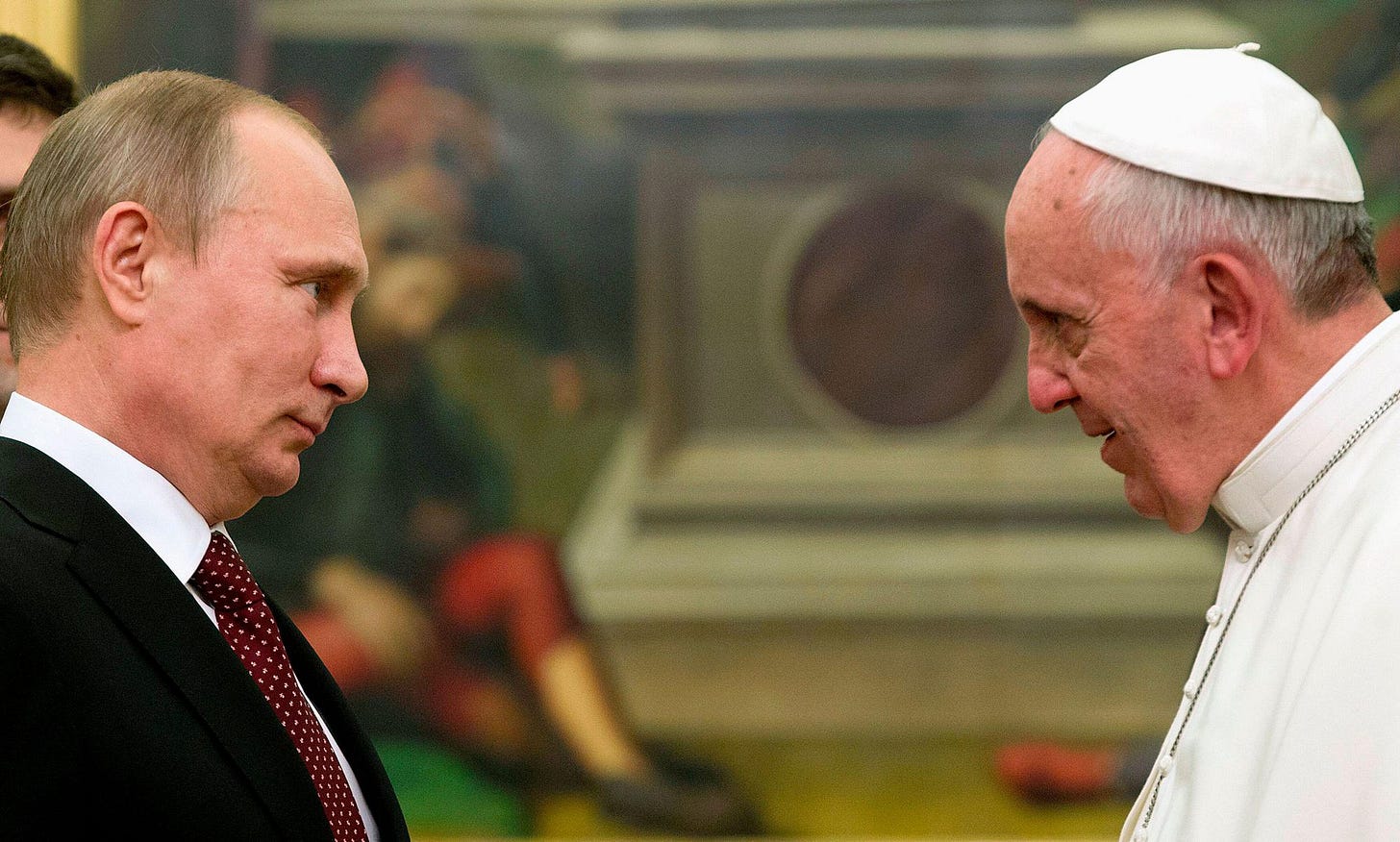How ‘serious’ is Pope Francis about peace?
Pope Francis has appealed to the Ukrainian president to be open to “serious proposals for peace.” But are serious proposals on offer? And how much moral weight does he have to throw behind them?

Pope Francis made an impassioned plea for peace during his Angelus address on Sunday. Speaking directly to the leaders of Russia and Ukraine, the pope’s plea for peace came after Russian President Vladimir Putin’s annexation of four Ukrainian regions, and his threat to deploy nuclear weapons.
During his address, Francis made a “confident appeal to the Pr…
